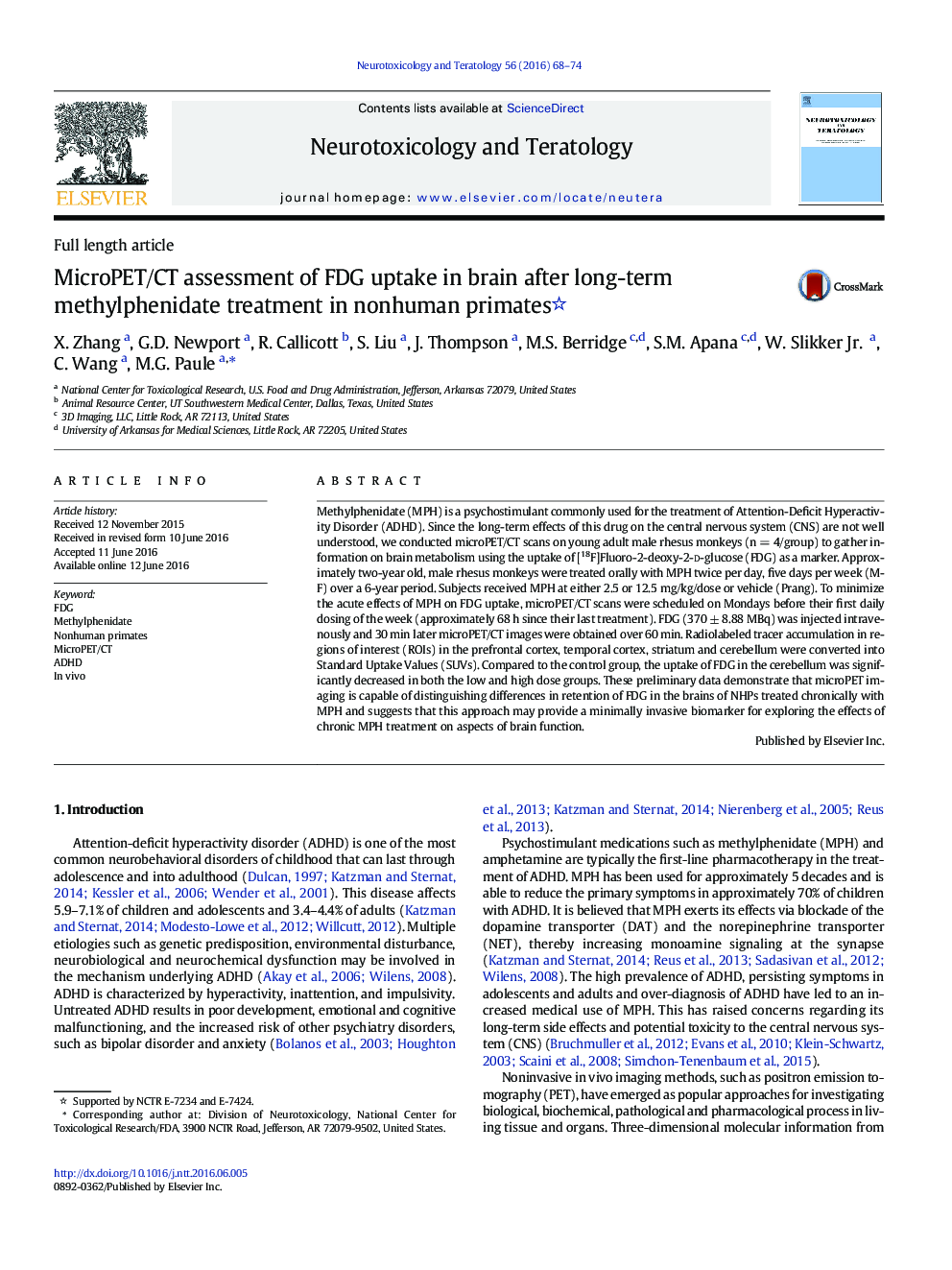| Article ID | Journal | Published Year | Pages | File Type |
|---|---|---|---|---|
| 2590805 | Neurotoxicology and Teratology | 2016 | 7 Pages |
•The long-term effects of methylphenidate on the central nervous system are investigated.•The uptake of FDG in cerebellum is reduced by chronic exposure to MPH.•MicroPET imaging provides a minimally invasive biomarker for exploring the effects of chronic MPH treatment on aspects of brain function.
Methylphenidate (MPH) is a psychostimulant commonly used for the treatment of Attention-Deficit Hyperactivity Disorder (ADHD). Since the long-term effects of this drug on the central nervous system (CNS) are not well understood, we conducted microPET/CT scans on young adult male rhesus monkeys (n = 4/group) to gather information on brain metabolism using the uptake of [18F]Fluoro-2-deoxy-2-d-glucose (FDG) as a marker. Approximately two-year old, male rhesus monkeys were treated orally with MPH twice per day, five days per week (M-F) over a 6-year period. Subjects received MPH at either 2.5 or 12.5 mg/kg/dose or vehicle (Prang). To minimize the acute effects of MPH on FDG uptake, microPET/CT scans were scheduled on Mondays before their first daily dosing of the week (approximately 68 h since their last treatment). FDG (370 ± 8.88 MBq) was injected intravenously and 30 min later microPET/CT images were obtained over 60 min. Radiolabeled tracer accumulation in regions of interest (ROIs) in the prefrontal cortex, temporal cortex, striatum and cerebellum were converted into Standard Uptake Values (SUVs). Compared to the control group, the uptake of FDG in the cerebellum was significantly decreased in both the low and high dose groups. These preliminary data demonstrate that microPET imaging is capable of distinguishing differences in retention of FDG in the brains of NHPs treated chronically with MPH and suggests that this approach may provide a minimally invasive biomarker for exploring the effects of chronic MPH treatment on aspects of brain function.
